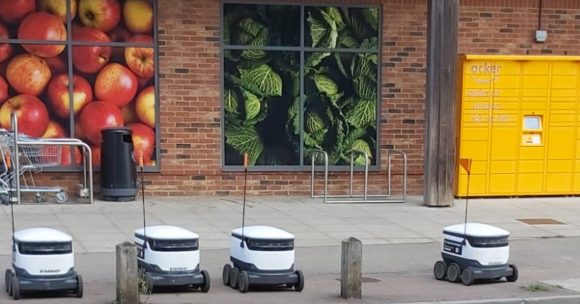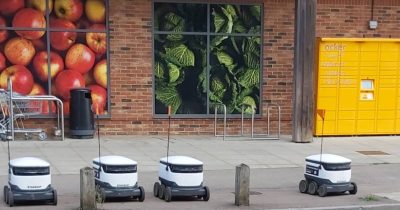Recent research highlights the significant role human interactions play in the effective operation of autonomous delivery robots. According to the study, individuals instinctively adjust their behavior to facilitate the smooth movement of these robots on city streets.
This “invisible labor” performed by people is crucial and should be taken into account when planning the robots’ routes.
The collaborative study involved experts from the University of Nottingham’s School of Computer Science and Horizon Digital Economy Research, Linkoping University in Sweden, and the University of York.
They examined how delivery robots were received and interacted with in two UK cities. Their findings indicated that these robots smoothly integrate into urban environments, largely because they are intuitively allowed to pass by pedestrians they meet.
Delivery robots in the UK
We see a number of companies moving towards the innovation of delivery robots. Recently, Locate2u reported on Hyundai Motors and Kia teaming on the DAL-e Delivery robot. It achieves a top speed of 1.2 m/s and navigates easily around obstacles and in narrow passages.
Dong Jin Hyun, vice president and head of the robotics lab at Hyundai Motor and Kia says DAL-e Delivery offers efficient and reliable food and beverage and parcel dispatch services to ensure customers receive goods on time.
In its report, the University of Nottingham says delivery robots are being trialed in several UK cities including Milton Keynes, Manchester, Cambridge, and Northampton. “They provide deliveries over shorter distances for a range of companies and are powered by artificial intelligence and GPS navigation,” the university says.
The study found that autonomous delivery robots often become inadvertent obstacles in urban environments, prompting pedestrians to make minor yet crucial adjustments to their behavior. For instance, individuals might step aside to clear a path, or a window cleaner might briefly stop working to let a robot pass.
In some cases, people gently nudge the robot with a foot to encourage movement if it stalls, or they adjust their walking speed to follow behind it. These interactions are subtle but essential for the smooth operation of delivery robots in crowded areas.
People’s interaction with robots
Dr Stuart Reeves from the School of Computer Science emphasizes that as the use of delivery robots increases, it is important to understand how people interact with them and acknowledge the role people on the street have in making the operation of robotic systems in public possible.
“When designing routes and programming robots, designers tend to put the robot at the heart of the space, but what we showed is that for a robot to successfully navigate a route it relies on the accommodation of people for it to be successful and not become an obstacle itself,” says Dr. Reeves.
ALSO READ: Robotics trends for 2024: What’s the impact on logistics?
Photo Credit: University of Nottingham
About the author
Sharl is a qualified journalist. He has over 10 years’ experience in the media industry, including positions as an editor of a magazine and Business Editor of a daily newspaper. Sharl also has experience in logistics specifically operations, where he worked with global food aid organisations distributing food into Africa. Sharl enjoys writing business stories and human interest pieces.











